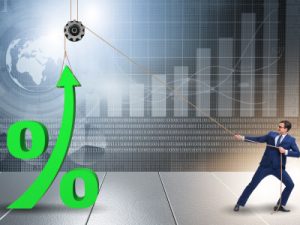A Basic Guide to Inflation
‘Inflation has peaked’
‘RBI reviews inflation projection’
‘Government steps in to cut inflation’
These are some of the headlines that you may have seen regarding inflation recently. A term that is spoken about with some level of apprehension, inflation has a significant impact on the economy and your finances as well. But what exactly is inflation?
What is Inflation and What Does it Mean
What we could purchase for Rs. 10 a few years ago, costs about Rs. 50 now. You need more money to purchase the same amount of products/services that you did before.
In other words, the purchasing power of money has reduced and there is a general increase in the price of goods and services. This is referred to as inflation. The inflation rate in India as of April 2022 was 7.79%.
Why Does it Happen?

When there is an imbalance between demand and supply or there are changes in distribution or production costs such as labor, raw materials, etc., or if there is an increase in taxes then there is a rise in the prices of goods and services. This in turn has an impact on the currency which reduces the value of money. This is why it costs more to buy the same product over time.
External factors like wars such as the Russia-Ukraine conflict and the ongoing COVID pandemic also have an impact on the economy and subsequently, inflation.
How Does it Affect You

When the prices of goods and services become dearer, you will have to shell out more which impacts your personal finances. Your income will need to be higher just to afford the same products and services in the future that you have been enjoying right now.
Eating the same food, traveling to the same places, and all the activities you enjoyed at the beginning of the year will get much more expensive towards the end of the year thanks to inflation and this will impact your quality of life.
However, although inflation is usually spoken about as being negative, for a healthy economy, a moderate level of inflation of around 2% or 3% is good for the economy. At this level, people will continue to purchase more as well as borrow more and this results in a low interest rate as well.
How is Inflation Calculated?

CPI which is the Consumer Price Index and WPI which is the Wholesale Price Index are the two indices used to measure inflation and analyze inflation rate on regular consumers. Expenses such as education, food, healthcare, etc. are considered along with goods that are sold in bulk such as oil and pulses to vendors and merchants. For the common man, CPI will be the most significant determinant of inflation.
260 commodities are considered for CPI. The prices of sample products on a monthly basis is taken into account in order to track the changes in prices.
697 commodities are taken into consideration for WPI and consist of products such as fuel, manufactured products, and power. The Ministry of Commerce and Industry calculates the collective price each month to determine the WPI.
How to Combat Inflation

While inflation can wreak havoc on your day to day life, there are ways to protect yourself and your family financially. The value of the rupee is currently falling and prices everywhere for all commodities and services are increasing.
You will need to either earn enough to beat inflation (which may not be possible for everyone) or you need to invest your savings in such a way that it must beat the rate of inflation.
This is why experts advise individuals to not solely rely on schemes such as RDs/FDs or park your money in the savings account because the rate of interest is lesser than the rate of inflation. Most of us have been taught to save rather than invest due to the risks involved, but over time, savings will not help you get by.
Options such as stocks and mutual funds should be considered and if you can afford it, real estate, gold, and cryptocurrencies as well. While these options are definitely riskier than traditional savings schemes, the returns will be higher and traditional schemes will only reduce the value of your assets over time due to the low interest rates.
Conclusion
The term inflation usually evokes some measure of fear and apprehension but if one knows how to stay ahead of it, on a moderate level, it can be beneficial for the country as well as consumers. But out of control, it can have a detrimental effect on your everyday expenses.
Always try to invest in high yield options and spend money carefully. In the meantime, if you have urgent expenses that you need to fulfill, why not get a personal loans from Money View.
What are your thoughts on inflation? What tips do you follow to stay ahead? Let us know in the comments below!

One of the best strategies to beat inflation is to invest in things or products that have a greater chance of being equivalent to or more than the rate of inflation tomorrow. When picking the best investments for inflation protection investors should always research well on their own risk profile and goals.Debt mutual funds are investment vehicles that invest in individual bonds. These are highly liquid investments that also pay a fixed rate of interest. The interest rate is set to account for changes in inflation. As a result, it is a viable option for beating inflation.
This is a great point! thank you for mentioning it, our readers will definitely benefit from it.